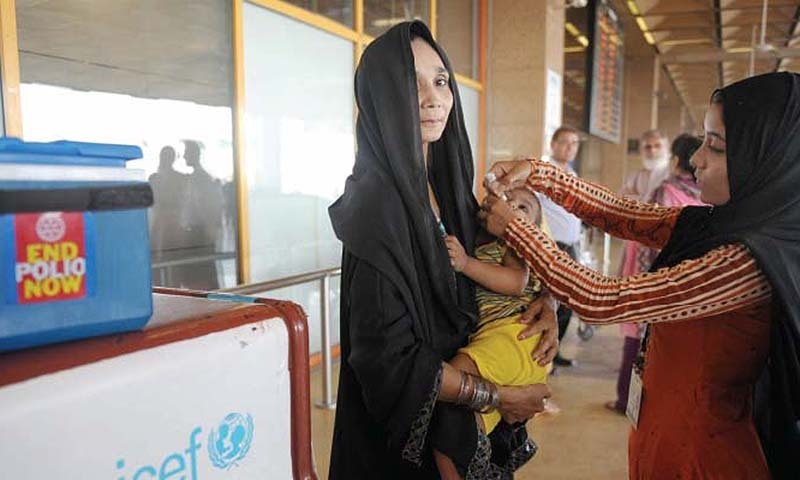Travel restrictions on Pakistan by WHO to be enforced from today

KARACHI: The travel restrictions on Pakistan recommended by World Health Organisation (WHO) due to the rising number of polio cases in the country, will be enforced from today (June 1), DawnNews reported.
The WHO issued its new guidelines in order to curb the spread of polio, which had become an international health emergency threatening to infect other countries.
The public health arm of the United Nations recommended that from June 1, people travelling abroad from Pakistan should present a polio vaccination certificate.
WHO recommended strict travel restrictions on Pakistan on May 5 due to the increase in the crippling disease.
In a statement, the WHO said Pakistan, Cameroon, and the Syrian Arab Republic pose the greatest risk of further wild poliovirus exportations in 2014. The WHO recommended:
“These States should:
officially declare, if not already done, at the level of head of state or government, that the interruption of poliovirus transmission is a national public health emergency;
ensure that all residents and long-term visitors (i.e. > 4 weeks) receive a dose of OPV or inactivated poliovirus vaccine (IPV) between 4 weeks and 12 months prior to international travel;
ensure that those undertaking urgent travel (i.e. within 4 weeks), who have not received a dose of OPV or IPV in the previous 4 weeks to 12 months, receive a dose of polio vaccine at least by the time of departure as this will still provide benefit, particularly for frequent travelers;
ensure that such travelers are provided with an International Certificate of Vaccination or Prophylaxis in the form specified in Annex 6 of the International Health Regulations (2005) to record their polio vaccination and serve as proof of vaccination;
maintain these measures until the following criteria have been met: (i) at least 6 months have passed without new exportations and (ii) there is documentation of full application of high quality eradication activities in all infected and high risk areas; in the absence of such documentation these measures should be maintained until at least 12 months have passed without new exportations.”
“Once a State has met the criteria to be assessed as no longer exporting wild poliovirus, it should continue to be considered as an infected State until such time as it has met the criteria to be removed from that category,” added the WHO statement.
Polio usually strikes children under five and is often spread via infected water. There is no specific treatment or cure, but several vaccines exist.
Experts are particularly concerned the virus continues to pop up in countries previously free of the disease, such as Syria, Somalia and Iraq — where civil war or unrest complicates efforts to contain the virus.









































